What to know
9 Things You Can Do for You and Your Baby. Learn about simple ways you can support your child before, during, and after shots.
1. Do your research

Take a moment to read about how you can prepare before your visit, and review any vaccine information provided by your child's doctor. If you want to do additional research, use CDC's vaccines for your children web site.
2. Ask for a sweet solution

Tasting something sweet can help reduce your little one's pain response. If your child is two years of age or younger, ask your child's doctor to give your child a sweet solution of sucrose or glucose one to two minutes before the shot. Even a very small amount can help reduce pain during shots.
3. If you can, breastfeed
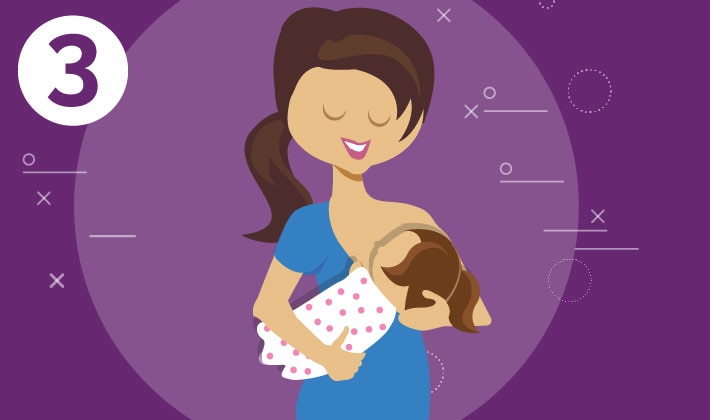
Breastfeeding can be a great way to calm and relax your baby, as it can help distract him or her and provide comforting close contact. Additionally, breastmilk has a slight sweetness, which can help reduce your child's pain during shots.
4. Ask for a pain-relieving ointment or spray

Ask your child's doctor for a pain-relieving ointment, which blocks pain signals from the skin. Because the ointment takes time to work, ask about it before your next well-child visit. Or, request a cooling spray (vapocoolant), which is applied on your child's arm or leg right before the shot. Using an ointment or cooling spray may reduce your and your child's stress during a well-check visit.
5. Be honest and calm
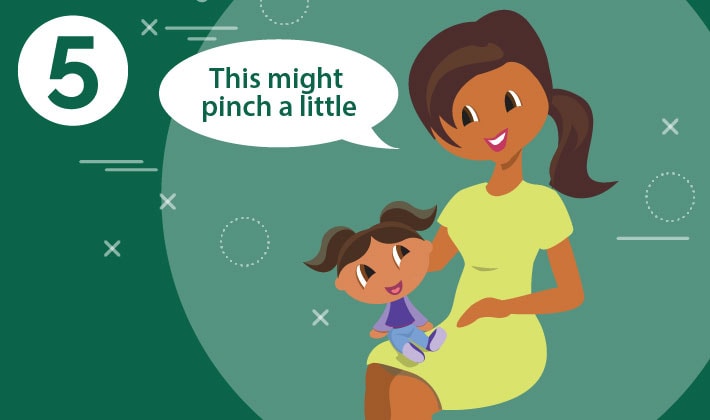
Kids are smart, so take time to explain in simple terms what to expect. Explain that your child may feel a little pinch and it will go away very fast. Use words like "pressure" or "poke" rather than "pain" or "shot." Even if your baby can't understand your words, your calm voice will be reassuring. Remain upbeat and relaxed before, during, and especially after shots.
6. Bring your child’s favorite things
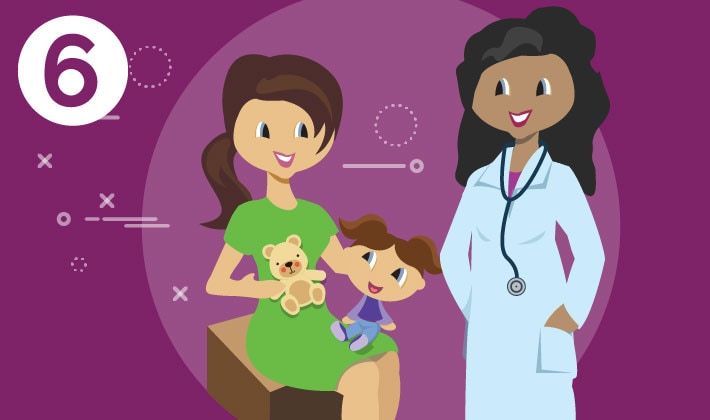
Bring anything your child finds comforting, like a favorite toy, blanket, or book, to help them focus on something pleasant. Make sure to check with your doctor before bringing items into the room with you.
7. Distract your child
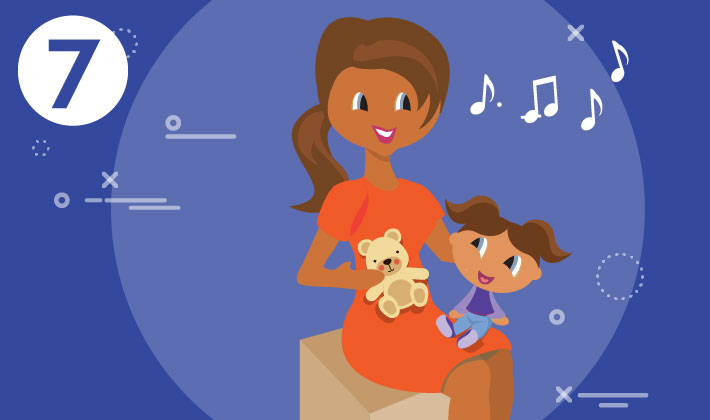
Right before the shot, call your child's name, sing your child's favorite song, tell a story, or just act plain silly to pull your child's attention away from the shot giver. Keep the distraction going after the vaccine is given.
8. Big kids need support too
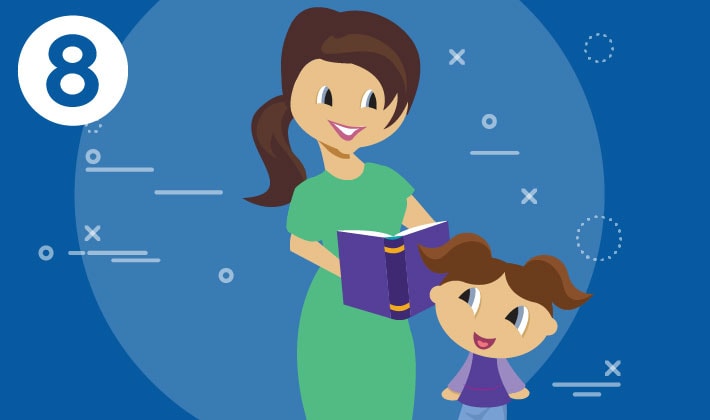
If your child is older, you can take deep breaths with them to help "blow out" the pain. Have them imagine the pain is leaving their mouth as they breathe out. Tell a story or point out interesting things in the room to help create distractions.
9. Care after the shot
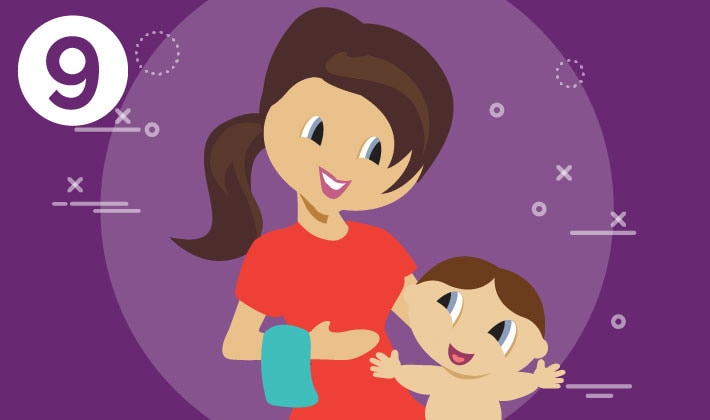
Calm young infants by swaddling them. Hugs, cuddles and soft whispers can help soothe older babies after a shot.
Your child may have mild reactions, such as pain and swelling where the shot was given or a fever; these are common and will soon go away. Contact your child's doctor if anything concerns you.
